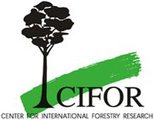A paper appearing in the open-access journal PLOS ONE presents the first whole-ecosystem analysis of carbon stocks of different kinds of coastal wetlands in a tropical karstic zone.
The analysis of “Carbon Stocks of Tropical Coastal Wetlands within the Karstic Landscape of the Mexican Caribbean” estimates that 43.2-58.0 million tons of carbon are stored across 172,176 hectares of coastal wetlands in the Sian Ka'an Biosphere Reserve (SKBR) of Mexico's Yucatán Peninsula.
 14 February 2013: A paper appearing in the open-access journal PLOS ONE presents the first whole-ecosystem analysis of carbon stocks of different kinds of coastal wetlands in a tropical karstic zone. The analysis of “Carbon Stocks of Tropical Coastal Wetlands within the Karstic Landscape of the Mexican Caribbean” estimates that 43.2-58.0 million tons of carbon are stored across 172,176 hectares of coastal wetlands in the Sian Ka’an Biosphere Reserve (SKBR) of Mexico’s Yucatán Peninsula.
14 February 2013: A paper appearing in the open-access journal PLOS ONE presents the first whole-ecosystem analysis of carbon stocks of different kinds of coastal wetlands in a tropical karstic zone. The analysis of “Carbon Stocks of Tropical Coastal Wetlands within the Karstic Landscape of the Mexican Caribbean” estimates that 43.2-58.0 million tons of carbon are stored across 172,176 hectares of coastal wetlands in the Sian Ka’an Biosphere Reserve (SKBR) of Mexico’s Yucatán Peninsula.
The study corroborates prior estimates that tropical wetlands are among the most carbon-rich ecosystems in the world. The authors of the study warn that mangroves are disappearing faster than any other forest ecosystem, with some 10% of all mangroves, or roughly 1.5 million hectares, occurring in karstic regions, notably in Cuba, Mexico, Madagascar, and the Philippines.
The study argues that more accurate estimates of the carbon stored in coastal wetlands are needed to mitigate terrestrial carbon emissions through wetland protection and restoration efforts. Its findings indicate that tall mangrove ecosystems in the SKBR are the most carbon-rich, followed by medium mangroves, dwarf mangroves, and tidal marshes. Soil carbon accounts for the majority of the total carbon stored in each of the ecosystems.
The study was conducted by an international team of researchers, including representatives from the Center for International Forestry Research (CIFOR) in Indonesia, and the Instituto Politécnico Nacional in Mexico, in collaboration with additional partners in Australia, Mexico, and the US. [Publication: Carbon Stocks of Tropical Coastal Wetlands within the Karstic Landscape of the Mexican Caribbean] [CIFOR Press Release]